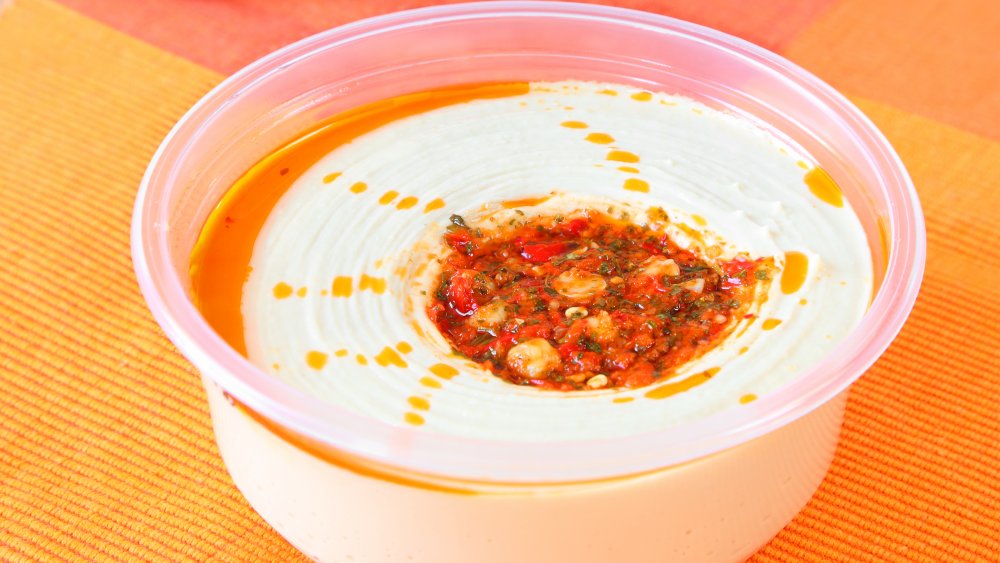Here's How You Can Tell When Hummus Has Gone Bad
Let's face it, most of us immediately pitch anything in the refrigerator if the "best if used by" date has come and gone. It's as if we've been brainwashed to believe that something nefarious happens to the food between the last day it is marked as good to eat and the following day when it is suddenly considered "bad."
To be fair, there are some foods that do spoil quickly, but what about hummus? Hummus is a rich and creamy Middle Eastern spread made from chickpeas that you probably love to dip your pita bread and fresh veggies in, and you might even move your beloved mayo aside to make room for the deliciousness of hummus on your sandwiches. In fact, according to Today, it's estimated that one in four households have a store-bought version of this dip in their refrigerator, as its popularity and consumption is on the rise.
And it's easy to understand why people love it. Hummus is filled with an alphabet of vitamins and minerals. It is a great source for protein and fiber, and it is easy on the pocketbook. It's super tasty too. But how can you tell if hummus has gone bad and it's truly time to make the three-pointer with the container into the kitchen circular?
When to toss your hummus
First, it should be noted that hummus generally has a "best if used by" date. This is different from an expiration date. A "best if used by" marking is more about the quality of the food than if it is about it actually being harmful or becoming spoiled. Store-bought hummus that is stored properly — that is, lid securely on the container to keep out moisture and bacteria and refrigerated — can last anywhere from three to 10 days past the "use by" date, while a homemade version should be eaten within three to five days of making it.
But with that said, how do you know if your hummus is no longer consumable? The best way to tell is to simply smell it. Hummus that has gone bad smells sour, and it also tastes sour. Hummus that is fresh shouldn't have a real scent unless it has been seasoned with something strong like garlic or lemon. Once the sour smell and taste set in, it will likely develop the telltale signs of something expired: mold.
If you want to prolong the life of your hummus, you can freeze it. However, all hummus brands and recipes freeze differently, and freezing it can change the texture of the spread. After you defrost it, it is recommended you stir it. This should help it return to its thick and creamy consistency.

